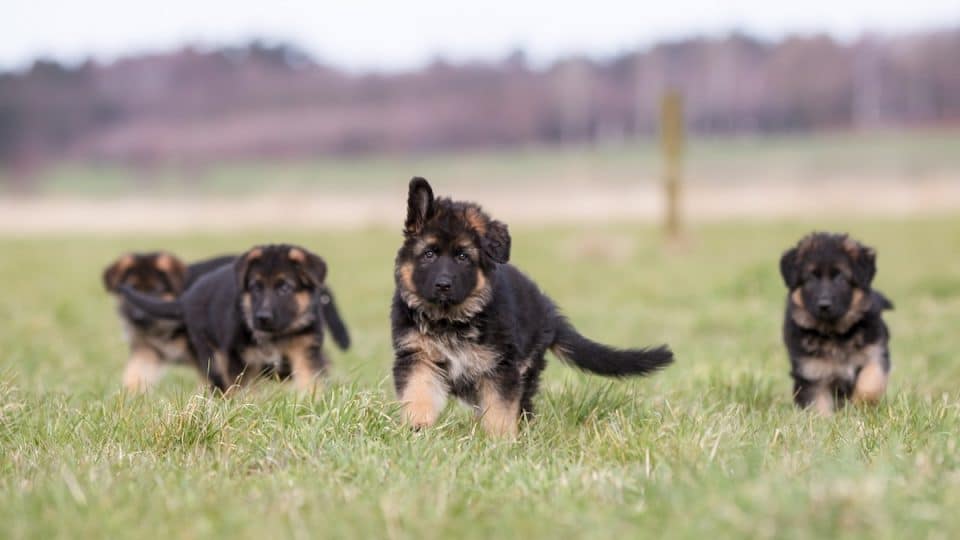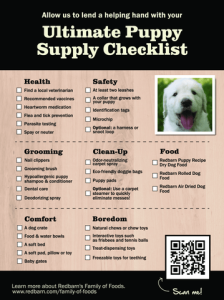Bringing a German Shepherd puppy into your home is exciting, but it can also feel overwhelming. You want to give your new furry friend the best start possible.
That’s why you need simple, clear tips that make training, caring, and bonding easier. Imagine having a happy, well-behaved puppy that listens to you and fits perfectly into your life. Keep reading, and you’ll discover the key secrets to raising your German Shepherd puppy with confidence and joy.
Your journey to becoming the best dog owner starts here.

Credit: www.youtube.com
Choosing The Right Puppy
Picking the right German Shepherd puppy starts with good choices. This guide helps you find a healthy and happy dog.
Focus on where you get the puppy, its health, and its personality traits. These factors shape your new pet’s future.
Selecting A Reputable Breeder
Choose a breeder who cares about the dogs and their well-being. A good breeder provides health records and answers your questions.
- Visit the breeder’s facility to see the living conditions.
- Ask about the parents’ health and behavior.
- Check for proper vaccinations and vet checks.
- Look for breeders who socialize puppies early.
- Avoid places that sell many breeds without care.
Identifying Healthy Puppies
A healthy puppy shows bright eyes and clean ears. Watch for a shiny coat and steady movements.
| Health Sign | What to Look For |
| Eyes | Clear, bright, no discharge |
| Ears | Clean, no bad smell or redness |
| Coat | Shiny, smooth, free of bald spots |
| Energy | Active, curious, playful |
| Body | Well-fed but not overweight |
Considering Temperament And Traits
Temperament matters for your home and lifestyle. German Shepherds vary in energy and friendliness.
- Look for puppies that enjoy gentle handling.
- Choose a puppy that is curious but not too shy.
- Ask the breeder about the parents’ behavior.
- Match the puppy’s activity level to your daily routine.
- Watch how the puppy reacts to new people and sounds.
Preparing Your Home
Getting a German Shepherd puppy is exciting. Your home needs to be ready for your new friend. This helps your puppy feel safe and happy.
Preparing your home means making a space that protects your puppy and gives all the things they need. This guide helps you get ready.
Creating A Safe Space
Your puppy needs a quiet, cozy spot to rest. This space should be free from loud noises and busy areas. It helps your puppy feel calm and secure.
- Choose a corner or small room for the puppy’s bed
- Use soft blankets or a dog bed for comfort
- Keep the area clean and dry
- Place water nearby but not too close to the bed
- Ensure good ventilation and avoid direct sunlight
Essential Supplies For Puppies
You need some basic supplies before your puppy arrives. These items help care for your puppy’s health and happiness.
| Supply | Purpose |
|---|---|
| Food and Water Bowls | For meals and hydration |
| Puppy Food | Nutrition for growth |
| Collar and Leash | For walks and training |
| Toys | Chewing and playing |
| Crate or Playpen | Safe space and training |
| Cleaning Supplies | Cleaning accidents |
Puppy-proofing Tips
Make your home safe by removing dangers. Puppies explore with their mouths. Keep harmful items out of reach.
- Store cleaning products and medicines in locked cabinets
- Hide electrical cords or cover them with protectors
- Remove small objects that your puppy could swallow
- Keep trash cans covered or out of reach
- Block stairs or dangerous areas with gates
- Check plants to make sure they are not toxic
Feeding Your Puppy
Feeding your German Shepherd puppy the right food helps them grow strong. Good nutrition supports their energy and health.
It is important to know what to feed, how much, and what to avoid. This guide covers these key points.
Best Diet For German Shepherds
Your puppy needs a balanced diet with protein, fats, and vitamins. High-quality puppy food made for large breeds works well.
- Choose food with real meat as the first ingredient
- Include healthy fats for skin and coat
- Add vegetables for fiber and vitamins
- Avoid fillers like corn and soy
- Give fresh water at all times
Feeding Schedule And Portions
Feed your puppy several small meals a day. This helps digestion and keeps energy steady.
| Age | Meals per Day | Portion Size |
| 8 to 12 weeks | 4 | Small portions, about ¼ cup each |
| 3 to 6 months | 3 | Medium portions, about ½ cup each |
| 6 to 12 months | 2 | Larger portions, about 1 cup each |
Avoiding Harmful Foods
Some foods can harm your puppy. Keep these out of reach to protect their health.
- Chocolate
- Grapes and raisins
- Onions and garlic
- Caffeinated drinks
- Alcohol
- Cooked bones

Credit: www.rover.com
Training Basics
Training your German Shepherd puppy is important for a happy life together. Start early and be patient.
Use clear commands and praise to help your puppy learn good behavior. Consistency is key.
Housebreaking Techniques
Housebreaking means teaching your puppy where to go potty. Take them outside often, especially after eating.
Watch for signs like sniffing or circling. Praise your puppy when they go outside.
- Set a regular schedule for bathroom breaks
- Use the same spot outside for potty time
- Clean accidents inside with odor remover
- Be patient and never punish accidents
Basic Obedience Commands
Start teaching simple commands like “sit,” “stay,” and “come.” Use treats to reward good behavior.
Keep training sessions short and fun. Repeat commands often to help your puppy remember.
- “Sit” helps your puppy stay calm
- “Stay” teaches patience and control
- “Come” keeps your puppy safe
- “Down” helps with calm behavior
Socialization With People And Pets
Expose your puppy to many people and pets early. This helps them feel comfortable and friendly.
Arrange calm meetings and watch your puppy’s reactions. Praise good behavior during social time.
- Introduce new people gently and slowly
- Allow your puppy to meet other dogs safely
- Use positive words and treats during socialization
- Avoid overwhelming your puppy with too many new things
Exercise And Play
German Shepherd puppies need regular exercise to stay healthy and happy. Playtime helps them learn and bond with you.
Proper activities keep their bodies strong and minds sharp. This guide covers daily needs and fun ways to play safely.
Daily Activity Requirements
Young German Shepherds have lots of energy. They need daily exercise to grow well and avoid bad habits.
- Take your puppy for short walks twice a day.
- Allow time for free play in a safe yard or park.
- Include gentle fetch sessions to build stamina.
- Use training sessions as a form of exercise.
- Adjust activity length as your puppy grows.
Safe Playtime Ideas
Play is fun but safety is key. Use toys and games that suit a German Shepherd puppy’s size and strength.
| Play Type | Recommended Toys | Safety Tips |
| Chewing | Rubber chew toys | Check for small parts |
| Fetch | Soft balls or frisbees | Avoid hard or sharp toys |
| Tug-of-war | Strong rope toys | Teach gentle play |
| Hide and seek | Use treats or toys | Supervise the game |
Mental Stimulation Activities
Puppies need mental exercise too. It helps reduce boredom and builds good behavior.
- Teach simple commands like sit and stay.
- Use puzzle toys with treats inside.
- Hide treats for your puppy to find.
- Rotate toys to keep interest high.
- Practice short training sessions daily.
Health Care Essentials
German Shepherd puppies need special care to stay healthy. Their health care includes vaccinations, regular vet visits, and knowing common health issues.
These essentials help your puppy grow strong and live a happy life. Let’s explore each aspect in detail.
Vaccination Schedule
Vaccinations protect your puppy from diseases. Follow a schedule to keep them safe.
- 6-8 weeks: Distemper, Parvovirus
- 10-12 weeks: Parainfluenza, Bordetella
- 14-16 weeks: Rabies
- 12-16 weeks: Leptospirosis (optional)
Common Health Issues
German Shepherd puppies may face some common health issues. Early detection is key.
- Hip dysplasia
- Elbow dysplasia
- Allergies
- Gastric torsion
Regular Vet Check-ups
Regular vet check-ups are important for your puppy’s health. They help in early detection of issues.
Vets provide guidance on diet, exercise, and preventive care. Regular visits ensure your puppy stays healthy.
Grooming Needs
German Shepherd puppies need regular grooming to stay healthy. Good grooming keeps their coat shiny and clean.
Proper grooming involves brushing, bathing, trimming nails, and checking ears and teeth.
Brushing And Bathing
Brush your German Shepherd puppy every few days. This reduces shedding and keeps their coat neat.
Bathe your puppy monthly or when they get dirty. Use dog shampoo to protect their skin.
- Use a soft brush for puppies
- Check for knots and tangles
- Rinse thoroughly after shampooing
Nail Trimming Tips
Keep your puppy’s nails short to prevent discomfort. Trim them every few weeks.
Use dog nail clippers and be careful not to cut too deep.
- Trim nails after a bath
- Use treats to keep them calm
- Check for bleeding after trimming
Ear And Teeth Care
Check your puppy’s ears weekly for dirt or redness. Clean them with a vet-approved solution.
Brush your puppy’s teeth to prevent dental issues. Use a dog toothbrush and toothpaste.
- Clean ears gently with a cotton ball
- Brush teeth 2-3 times a week
- Reward them after cleaning
Building A Strong Bond
Building a strong bond with your German Shepherd puppy is important. It helps your puppy feel safe and loved.
Spending time and using good training methods create trust and friendship between you and your puppy.
Positive Reinforcement
Positive reinforcement means rewarding your puppy for good behavior. This helps your puppy learn fast and enjoy training.
Use treats, praise, or playtime to reward your puppy. This encourages them to repeat good actions.
- Give treats immediately after good behavior
- Use a happy voice to praise your puppy
- Keep training sessions short and fun
Spending Quality Time
Spend time with your puppy every day. Play, walk, and cuddle to build your connection.
Quality time helps your puppy feel secure and happy. It also teaches them that you are a friend.
- Play gentle games like fetch or tug
- Take short, calm walks outside
- Give your puppy quiet time on your lap
Reading Puppy Body Language
Watch your puppy’s body to understand how they feel. This helps you respond in the right way.
Signs like wagging tails or relaxed ears show happiness. Growling or hiding can show fear or stress.
- Wagging tail means your puppy is happy
- Relaxed ears show calm and trust
- Growling or showing teeth means discomfort
- Cowering or hiding means fear or stress

Credit: jessthewriter.medium.com
Frequently Asked Questions
How Do I Care For A German Shepherd Puppy?
Caring for a German Shepherd puppy involves proper nutrition, regular vet visits, and socialization. Provide balanced food, ensure vaccinations, and start training early. Offer plenty of exercise and mental stimulation to promote healthy growth and behavior.
What Is The Best Diet For German Shepherd Puppies?
A balanced diet rich in protein, healthy fats, and essential nutrients is ideal. Choose high-quality puppy food formulated for large breeds. Avoid overfeeding and provide fresh water. Consult your vet for tailored feeding plans and portion sizes.
How Can I Train My German Shepherd Puppy Effectively?
Start training early using positive reinforcement techniques. Use treats, praise, and consistency. Focus on basic commands like sit, stay, and come. Socialize your puppy with people and other dogs to build confidence and good behavior.
When Should I Start Socializing My German Shepherd Puppy?
Begin socialization as early as 3 weeks old and continue through 16 weeks. Expose your puppy to different environments, people, and animals. This helps prevent fearfulness and aggression while promoting a well-adjusted adult dog.
Conclusion
Caring for a German Shepherd puppy takes time and patience. Consistent training helps build good habits early. Healthy food and regular exercise keep your pup strong. Socializing your puppy makes them friendly and confident. Remember, love and attention help your dog feel safe.
Enjoy each moment with your new furry friend. The effort you put in now pays off later. Your puppy will grow into a loyal, happy companion. Keep learning and stay patient along the way.

Emily Barker is the founder of ChillDogLife.com, a space dedicated to helping pup parents discover the best dog products, lifestyle tips, and cozy ideas for happier homes.
A lifelong dog lover, Emily combines her passion for pets with a knack for research to share trusted recommendations on everything from toys and furniture to health and everyday care.
Her goal is simple: to make life easier, stylish, and more joyful for dogs and the people who love them.







